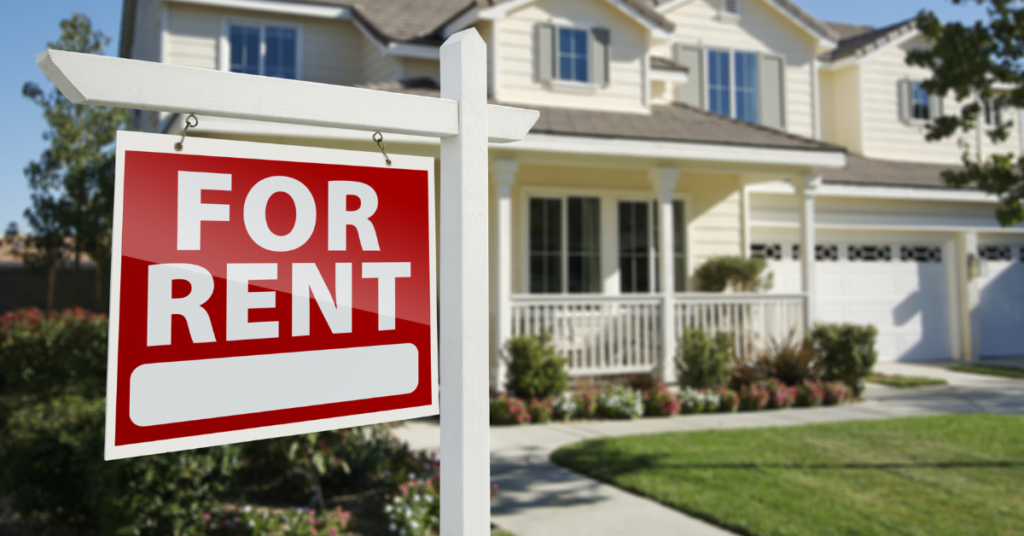Property Preparation for Rent: Essential Tips for Landlords
Reading Time: 8 minutesRenting out a property can be a great way to generate additional income, but it requires diligent preparation and care to be successful. As a landlord, the effort you put into readying your rental property will directly impact your ability to attract quality tenants, minimize headaches, and maximize returns. This comprehensive guide covers key areas…

Renting out a property can be a great way to generate additional income, but it requires diligent preparation and care to be successful. As a landlord, the effort you put into readying your rental property will directly impact your ability to attract quality tenants, minimize headaches, and maximize returns.
This comprehensive guide covers key areas landlords should address when preparing their properties for rental. Let’s dive in!
Table of Contents
Staging Your Property for Rent

A rental property’s first impression is critical for attracting tenants. Preparation is invaluable for ensuring your rental property consistently attracts qualified applicants with a profile you are comfortable accepting as tenants in your unit. Tenants want to move into a space that feels clean, safe, inviting, and ready for occupancy—and their first impression upon visiting will often make or break their decision.
Take time to prepare your property so it shows at its absolute best. Remember, you can’t undo that initial first impression a tenant gets when viewing your property for the first time.
Importance of First Impressions
First impressions matter, so make the most of your rental property’s curb appeal. Ensure the lawn is maintained, landscaping is tidy, exterior lighting works, and walkways are clear. Consider giving the front door a fresh coat of paint or having the exterior power washed. These small investments make a big difference.
Decluttering and Depersonalization
One of the most important steps is to declutter and depersonalize the property. Remove all clutter, so spaces appear clean and spacious. Take down personal photos, art, and mementos. Pack away specialty décor and knickknacks. You want prospective tenants to envision this as their potential home, not yours.
Highlighting Key Features and Selling Points
As you declutter, ensure desirable features still stand out. For example, arrange furniture to highlight an attractive fireplace or accentuate an open floor plan. Draw attention to amenities like large closets, ample storage, laundry machines, or updated fixtures. Emphasize selling points like a large yard, new roof, or proximity to parks.
Incorporating Neutral and Inviting Decor
Use neutral-colored linens, towels, curtains, and accent pillows to give the property a clean, contemporary look. Incorporate practical furnishings that allow tenants to envision utilizing the space. Place a few green plants for warmth. Consider a light air freshener or scented candles for pleasant aromas. The goal is a warm, inviting ambiance.
Essential Maintenance Tasks for Landlords

Preventative maintenance and repairs are critical for landlords to preserve property value, avoid legal issues, and provide tenants with a comfortable living environment. By conducting regular inspections and proactively addressing repairs and upgrades, landlords can stay ahead of more costly damages down the road.
Pre-Rental Inspection Checklist
Before renting out a property, landlords should conduct a thorough inspection and identify any issues or improvements needed. Key items to evaluate include:
- Electrical systems – check for faulty wiring, sufficient outlets, grounded connections
- Plumbing – inspect for leaks, water pressure, drain clogs, water heater functionality
- HVAC and ventilation – ensure proper airflow, filter changes, heating/cooling functionality
- Appliances – test all appliances and check for damaged or outdated models
- Structural issues – look for cracks, water damage, pests, weathering
- Doors and windows – check for drafts, damage, ease of operation
- Overall cleanliness and cosmetic fixes – declutter, clean, touch up paint and floors
Document any repairs needed and address them promptly. Taking care of problems proactively makes for a smoother rental process.
Addressing Repairs and Necessary Upgrades
During a rental term, issues will inevitably arise that require landlord attention. Common repairs include leaky pipes, appliance malfunctions, HVAC problems, and electrical issues. Staying on top of reported problems quickly shows tenants you care and helps avoid bigger headaches.
It’s also important for landlords to make upgrades that extend the property’s lifespan and improve living standards. Upgrading to energy-efficient appliances and lighting, improving insulation, and remodeling bathrooms or kitchens periodically keeps properties competitive.
Ensuring Safety Compliance
Landlords have legal obligations to ensure their rental properties meet all local safety regulations. This includes installing smoke detectors, testing for lead paint and asbestos, evaluating fire hazards, and checking for mold and mildew. Regular safety inspections and certifications may be required.
Regular Maintenance Schedules
In addition to responding to issues as they arise, landlords should establish regular maintenance schedules. This includes replacing HVAC filters quarterly, testing smoke detectors biannually, checking roofs and gutters seasonally, and scheduling annual inspections. Routinizing maintenance maximizes property lifespan.
Marketing Strategies for Rental Properties
An effective marketing strategy is crucial for attracting qualified tenants quickly. You’ll want to utilize various platforms and techniques to promote your rental property.
Professional Photography and Virtual Tours
Invest in high-quality professional photography and videography to showcase your property. Photographs should highlight features and be well-lit and inviting. Offer virtual tours so potential tenants can view the property online.
Crafting Compelling Property Descriptions
Write detailed and enticing property descriptions highlighting amenities, upgrades, and neighborhood features. Focus on benefits that will appeal to tenants rather than just listing basic facts.
Utilizing Online Platforms and Social Media
Promote listings on property sites like Zillow, Trulia, and HotPads. Create social media posts showcasing photos, videos, and descriptions and target local tenant demographics.
Setting Competitive Rental Rates
Research comparable properties in your area and price your rent competitively. If the price is too high, your property may sit vacant longer. Price too low and you leave money on the table. Set fair market rates to attract responsible tenants.
Legal Considerations and Documentation

Ensuring you are legally compliant is a critical aspect of renting out a property. As a landlord, you have important legal responsibilities you must fulfill. Here are some key areas to focus on:
Understanding Local Rental Laws
- Research your state and city laws about landlords and tenants. There are often specific regulations around security deposits, maintenance, discrimination, entry rights, termination notices, and more. Familiarize yourself with the rules.
- Many areas require landlords to obtain a rental license or certificate to rent out properties legally. Check municipal requirements and register your rental property if needed.
- Consider hiring a real estate lawyer if you need help navigating complex rental laws and regulations. They can ensure you avoid issues down the line.
Creating Comprehensive Lease Agreements
- A detailed lease agreement that outlines policies, rent details, length of tenancy, and more is essential. Consult a template or real estate lawyer to ensure yours includes all necessary clauses and protections.
- Address late fees, returned check fees, maintenance requests, pets, subletting, early termination, and other policies. Stipulate who is responsible for which utilities, taxes, and fees.
- Have tenants thoroughly review and sign the lease. Both parties should retain copies including any signed addendums. Update as needed when tenants change.
Conducting Thorough Tenant Screenings
- Screen potential tenants carefully by doing background checks, credit checks, employment verification, rental history checks, and personal reference checks.
- Review screening results for any red flags like evictions, damages, late payments, short tenures, unauthorized pets, complaints, etc.
- Screening rigorously protects you from problem tenants and mitigates your rental property risks substantially. Do not skip detailed screening steps.
Clarifying Policies and Expectations
- Create rules, guidelines, and procedures for tenants and share them in the lease, a handbook, or via another method. Communicate policies verbally as well.
- Address things like maintenance requests, pest control, trash, parking, pets, noise, guests, smoking, alterations, emergencies, access, move-in/move-out, and any other rules.
- Outline expectations, processes, and consequences clearly so tenants understand the requirements and repercussions of violating policies. Review periodically.
Enhancing Tenant Experience
A positive tenant experience begins from day one. Creating a welcoming environment and maintaining open communication channels are key to establishing a good landlord-tenant relationship.
Welcome Packages
Consider preparing a welcome package for new tenants. This may include useful information about the rental property and local area, contact information for maintenance requests, instructions for equipment/appliances, and even some snacks or small gifts to help tenants feel at home. Welcome packages set a friendly tone from the start.
Clear Communication
Provide tenants with clear contact information for reaching you or a property manager. Be responsive to maintenance requests, concerns, or questions. Set expectations for response times and communication policies. Make sure tenants know how to get in touch for any issues that arise during their rental term.
Addressing Concerns
Make it easy for tenants to voice concerns and be proactive about resolving any problems or complaints quickly. Addressing small issues before they escalate into major problems is essential. Listen carefully to tenants, apologize for inconveniences, and take constructive feedback into account.
Positive Environment
Encourage tenants to care for the property as their own and to be considerate of neighbors. Remind them that the property is their temporary home and that you want them to enjoy their stay. A little extra effort to enhance the tenant experience goes a long way in creating goodwill and a positive living environment.
Budgeting and Financial Considerations for Rental Property Preparation

Allocating a sufficient budget for preparing your rental property is a crucial step that shouldn’t be overlooked. While some landlords may try to cut corners to save on upfront costs, proper investment in your rental will pay off exponentially in the long run. Here are some budgeting tips for landlords:
Factor in staging costs. Decluttering, deep cleaning, painting, decorating, and staging your rental can require a significant budget, but this will maximize your returns through higher rents and tenant satisfaction. Expect to invest 1-3% of your expected annual rental income into preparation.
Account for necessary upgrades and repairs. Don’t neglect essential maintenance and repairs in your budget. It’s better to fix issues preemptively than deal with tenant complaints and emergencies down the road. Focus on safety, functionality, and aesthetics.
Consider long-term ROI. Upgrades like new appliances, flooring, and lighting fixtures can seem costly upfront, but these investments will pay for themselves over time through higher rents, lower maintenance, and extended equipment lifespan. Calculate the ROI to guide your decisions.
Balance cost with value. Curb appeal, cleanliness, and interior finishes directly impact perceived value. Invest in the areas that matter most to tenants, like the kitchen, bathrooms, and living areas. Splurge on key upgrades rather than spreading yourself thin.
Track expenses for tax purposes. Keep detailed records of all rental preparation expenses, as most are tax deductible. Significant upgrades may also be depreciated over time as business expenses. Consult a tax professional to maximize write-offs.
Setting and sticking to a smart budget for your rental property will ensure you maximize your investment return in both the short and long-term. The upfront effort is well worth the substantial gains in rental income, lower maintenance costs, and improved tenant retention over time.
Tenant Selection
The tenant selection process is a crucial step for landlords to find reliable, long-term renters. Conducting effective property showings, thoroughly assessing applications, and performing due diligence with background checks and references will enable you to make informed choices.
Conducting Property Showings
- Schedule showings at convenient times when the property is accessible. Offer both day and evening time slots.
- Provide ample notice if you need to reschedule. Honor scheduled appointment times.
- Limit showing groups to a reasonable size to prevent overcrowding.
- Temporarily remove clutter and stage the property to highlight its appeal.
- Be available to answer questions and provide info like utility costs.
- Bring rental applications, take notes on prospects, get contact info.
Assessing Rental Applications
- Have all prospects complete a detailed rental application.
- Verify information like income, employment, and rental history.
- Look for prospective tenants who pay rent on time and stay long-term.
- Assess creditworthiness and follow up on any issues or discrepancies.
- Consider overall financial health and income-to-rent ratios.
Background Checks
- Perform background checks on all applicants to screen for issues.
- Check criminal and court records for any red flags.
- Look for past evictions, bankruptcies, or rental judgments.
- Invest in comprehensive background checks for peace of mind.
Checking References
- Require references from previous landlords and employers.
- Verify rental history like on-time payments and property care.
- Check references to confirm employment and income stability.
- Reach out directly to references provided for candid insights.
Thorough tenant selection helps minimize risks and ensures you find responsible renters who will care for your property. Taking time upfront prevents major issues down the road.
Conclusion
Property preparation for rent is a critical step in attracting quality tenants and maximizing your rental income. By tackling the different aspects of property preparation, landlords can minimize vacancies, mitigate potential issues, and ultimately foster a positive rental experience for all parties involved.
Ready to optimize your rental property? Partner with Green Ocean Property Management and elevate your rental success now!
Questions to Ask When Qualifying a Vendor
Reading Time: 3 minutes Property managers and landlords should know who to trust when it comes to property maintenance. Here are some questions to ask when qualifying a vendor. Who are vendors? Vendors are the people that go into your house and provide service. These can be plumbers, electricians, handymen, or appliance technicians. We need to make…
Why Hire a Property Manager: The Key to Maximizing Your Rental Income
Reading Time: 4 minutesMaximizing rental income is a top priority for real estate investors, and one key strategy for achieving this is by hiring a property manager. A study by Buildium found that in 2022, 27% of property managers in the USA are exceeding their client’s expectations with the help of their services. In this blog, we…
Navigating Complex Repairs at Beacon Hill
Reading Time: 2 minutesIn the heart of Boston’s historic Beacon Hill, where narrow streets, tight sidewalks, and bustling residents define the landscape, Green Ocean Property Management recently undertook a complex repair project: replacing an oil pipe. As any Beacon Hill local knows, the intricacies of this neighborhood demand careful planning and execution, especially when it comes to major…







